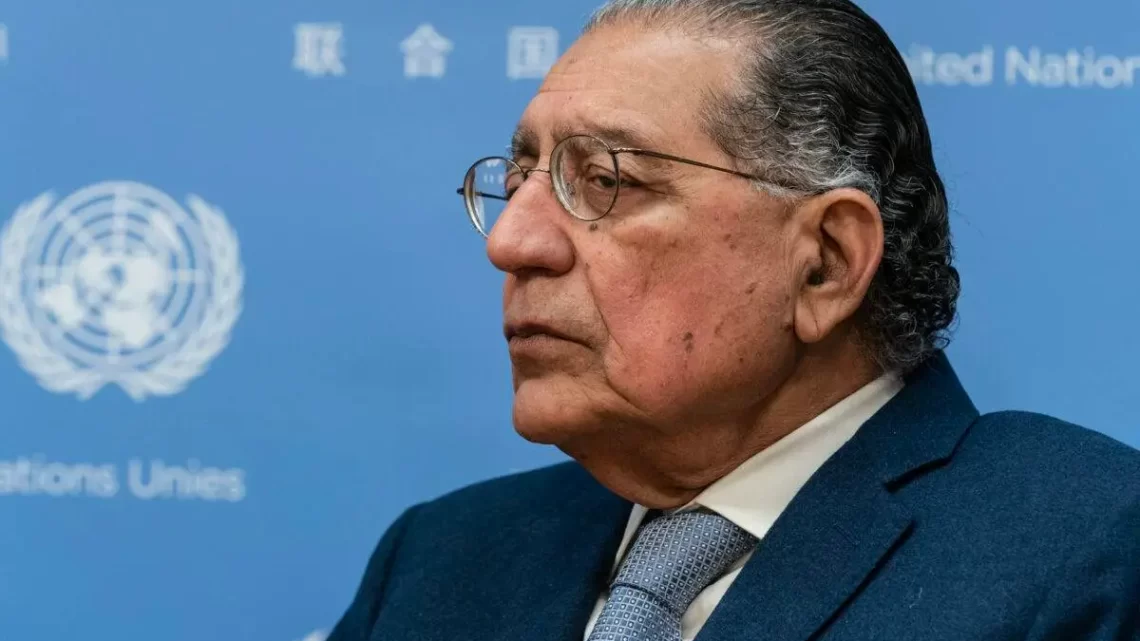
Pakistan Calls on UNSC to End Foreign Occupations and Support Self-Determination for Kashmir and Palestine
May 24, 2024In a strong appeal to the UN Security Council, Pakistan has urged decisive actions to safeguard civilians trapped in conflict zones, emphasizing the necessity of ending foreign occupations and advocating for the self-determination of the Kashmiri and Palestinian peoples. This call was made by Ambassador Munir Akram during a debate commemorating the twenty-fifth anniversary of Security Council Resolution 1265 (1999), which established the protection of civilians as a critical aspect of international peace and security, alongside the seventy-fifth anniversary of the 1949 Geneva Conventions.
Ambassador Akram stressed the importance of addressing the root causes of conflicts, promoting political solutions, upholding international humanitarian law, and ending the impunity for war crimes and crimes against humanity. He argued that the Security Council must hold perpetrators of war crimes accountable, halt weapon supplies to aggressors, and take action against states and individuals responsible for such crimes, thereby offering protection to civilians enduring foreign occupation.
Highlighting the ongoing violence against Palestinian civilians in Gaza, Ambassador Akram condemned what he described as a “plausible genocide” carried out by Israel. He asserted that this violence, marked by significant death and destruction, would remain a permanent stain on the world’s conscience. He criticized those complicit in these crimes by providing impunity to the Israeli leadership, including Prime Minister Benjamin Netanyahu and Defense Minister Yoav Gallant, for whom the International Criminal Court has sought arrest warrants.
Drawing parallels with the situation in Indian Illegally Occupied Jammu and Kashmir, Ambassador Akram described a longstanding campaign of oppression conducted by an extensive military presence of 900,000 troops. He noted that this campaign, executed with complete impunity, aims to enforce a “Final Solution” to the Kashmir dispute. Over 100,000 Kashmiris have been killed, and 13,000 young boys abducted and tortured, while Kashmiri leaders advocating for freedom and self-determination have been imprisoned, often dying under suspicious circumstances. Extra-judicial killings and collective punishments are rampant.
Ambassador Akram lauded the adoption of Resolution 2719 (2023), which signifies political support for the African Union (AU) partnership, as a crucial milestone for civilian protection through peace enforcement. He emphasized the need to build upon this example by enhancing the UN’s capacity, alongside regional organizations like the AU, to enforce peace and uphold civilian protection in conflict zones in alignment with international humanitarian law.
He underscored the necessity of political actions to resolve disputes and reinforced legal mechanisms to ensure accountability. Additionally, he stressed the importance of building the UN’s capacity to protect civilians, ensuring that these efforts are consistent with international humanitarian principles and norms.
To summarize, Pakistan’s call to the UN Security Council underscores a pressing need for international solidarity and decisive action to protect civilians in conflict zones, advocating for the end of foreign occupations and the upholding of self-determination rights for oppressed peoples worldwide.

